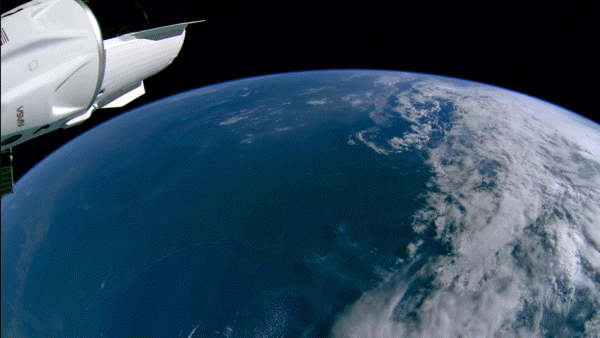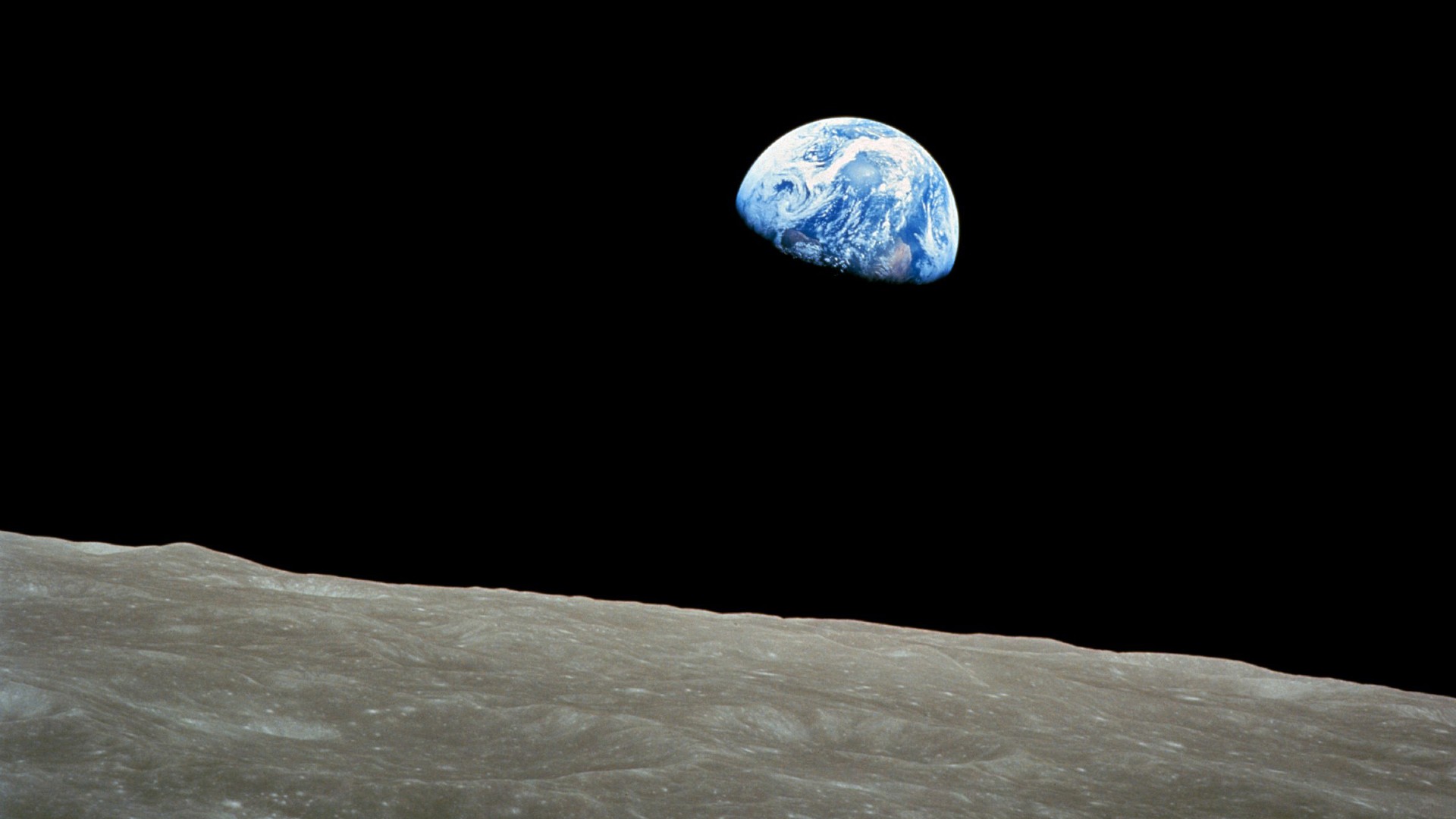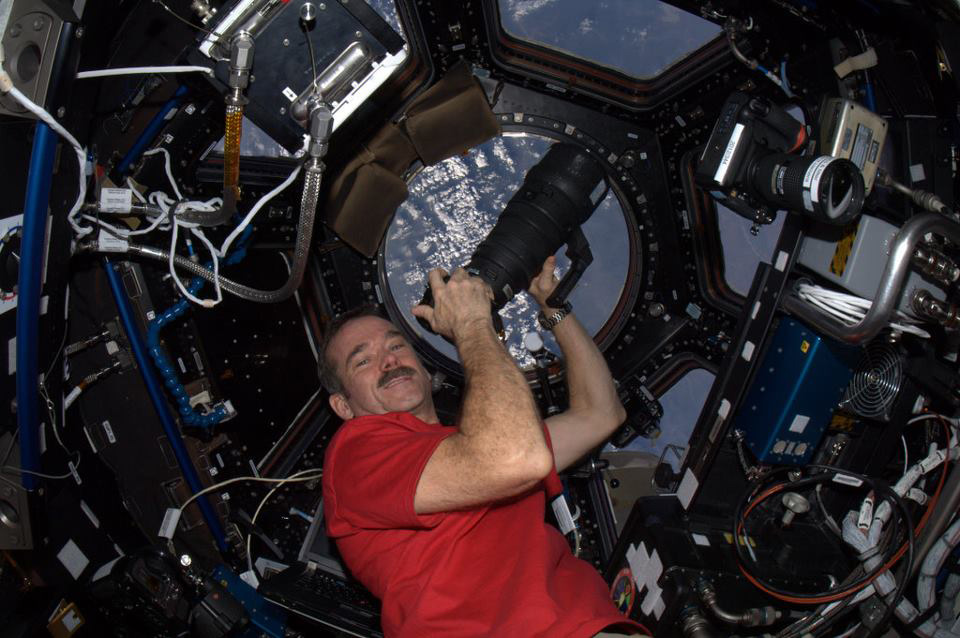
How Sen's 4K live cameras on the ISS offer a new perspective from space (op-ed)
Sen aims to use the story-telling power of video to inspire, empowering everyone to witness planetary change and humanity's exploration of space.

Charles Black is Founder and CEO of Sen.
Looking at our planet from space gives you a different view of life on Earth, one which has the power to change the way we think and the way we act.
Seeing Earth from space has largely been the preserve of a few hundred astronauts — around 700 humans have seen Earth from space in the six decades since Yuri Gagarin's historic first human spaceflight on April 12, 1961. The precise emotions and sentiments experienced when viewing the planet from above are individual and various, but the overall effect is invariable — a deeply profound change in perception about our world and life on Earth.

Frank White, author and space philosopher, created the term "The Overview Effect" to describe this cognitive shift that astronauts experience when they see Earth from space.
White writes: "Ever since my book, 'The Overview Effect: Space Exploration and Human Evolution,' was published in 1987, people have been saying to me, "Somebody should put a camera in orbit and continuously send pictures of the planet back to Earth. That way, all of us could experience the Overview Effect all of the time.
"I always said, 'Yes, someone should do it, and I will support them, but it probably won't be me'" Well, now Sen has done it, and this is a huge breakthrough. Of course, a picture or video is not the same as the Overview Effect itself. However, we urgently need to use every means available to show people that the Earth is a whole system in which everything is interrelated and interconnected. So, I wholeheartedly support Sen, and am looking forward to the future, when no one is saying to me, 'Wouldn't it be cool if somebody put a camera in orbit ...' Because it has been done!"
The Overview Effect is clearly an extremely significant change in perception experienced by those who look back at Earth from space. Imagine the impact it could have if everyone, not just astronauts, could see Earth from space. This is one of the reasons I founded Sen, to give everyone real-time Ultra High Definition views of Earth so that billions of people can see Earth in a similar way to astronauts and experience the Overview Effect.
Get the Space.com Newsletter
Breaking space news, the latest updates on rocket launches, skywatching events and more!

While seeing Earth from space on real-time video cannot be an identical experience to seeing it with one's own eyes like astronauts do, the experience of video is still important and compelling. It's just different.
By analogy, watching your favorite sports team perform live on TV tells you the same story and stirs the emotions as seeing it in person. If you see the game with your own eyes at the stadium, you experience additional senses and emotions, you see things you might not see on TV. But equally, watching the game on TV will offer different and additional perspectives, for example showing close-ups of the action. Multiple TV cameras in different places and different times can tell a story you might not see with your own eyes.
Overall, whether in person or on TV, the story is the same and excitement is delivered — it's just a different experience. It's the same with music. Listening to your favorite band live is a wonderful experience, but you still listen to their recordings at all other times. Whether live or recorded, the lyrics are the same, the tunes are the same and there's an emotional connection through the listening.
Seeing Earth from space, knowing that it's in real-time, that you're down on the surface will still enable billions of people to experience the Overview Effect — or an Overview Effect - even though the effect is different to what you would experience looking back at Earth from space with your own eyes.
Seeing the beauty of Earth and its fragility and susceptibility to natural disasters might change the way people feel about the environment. Those already aware of the need to tackle climate change might gain a new sense of urgency they would not otherwise have had. Those who don't consider climate change an important issue might see that it is real, that's it's having a significant daily impact on communities around the world. And everyone will see that there are no boundaries and that natural disasters are indiscriminate and negatively impact people all around the world. The truth is clear for all to see — taking action on climate change is a global issue and a global responsibility.
Chris Hadfield, who spent numerous months in space over three space missions, including as Commander of the International Space Station, described the Overview Effect in this way:
"It's supremely important for us to take care of each other and the day to day, and to recognize the incredible luck and uniqueness of the fact that we are alive on this little Eden of a place. We humans are the most intelligent life that there is any geologic record of ever existing here. We must think about the level of responsibility that comes with that, and how to be good stewards of this only home we know of."

Seeing Earth from space shows the big picture context, the reality of our existence on a planet all sharing the same space. It's one world, with billions of years of life potential. The peoples' planet — not "ours" as in ownership, but "ours" to look after for all people of all future generations. I believe the unique space perspective has the power to unify humanity and that the story of Earth and our future in space is a story about all of us.
We all need to be fully informed and play a part in looking after the planet. We are just temporary guardians for future generations, who will also be guardians for their future generations. As retired NASA astronaut Nicole Stott says "We're crewmates not passengers" on spaceship Earth. That's the reality. Space isn't something "up there". We're in it, moving through space right now on the most beautiful planet full of life and so many species and environments.
Looking at Earth from above can inspire global change if the changes in individuals' perception and the available data are turned into action. This is why I believe it's important there is a continuous livestream of video of Earth from space, telling the story of planetary change, raising awareness of the climate crisis and hopefully leading to action from the people. Political will and law-making, changes in corporate habits and activities are driven by the will of the people.
Another important reason to see video of Earth from space is simply this: it's the truth. Sen is streaming truth. In a world where AI-generated imagery and video is becoming ever more intelligent and accurate, the distinction between reality and fakery is becoming blurry. Seeing real-time views of Earth from space as it changes from night to day is a form of truth, a continuous dose of reality about life on Earth; a reality check, a wake-up call, a calming influence in a time of unstable geopolitics.
The vision of Sen is to democratize space using video to inform, educate, inspire and benefit all humanity. We want to use the story-telling power of video to inspire, empowering everyone to witness planetary change and humanity's exploration of space.
Sen already has a satellite in orbit, and more are being built to form a constellation. We're also planning to put video cameras into deep space to get additional perspectives of Earth as well as the moon and one day hopefully Mars. Sen's "SpaceTV-1" mission on the International Space Station was designed and built by Sen and will livestream Earth in 4K, giving everyone high quality views of Earth's horizon and looking down at the ground. The system will also demonstrate real-time overlay of mapping information for the camera view looking straight down. This use of Augmented Reality is designed to help people know instantly what area of the planet they are watching.
I encourage everyone to see Earth from space, you can see it live now on Sen.com and YouTube.com/sen or download our app for your iOS device. It's free for everyone, so please watch Earth live and experience a new way of seeing our home world ⎯ it's a story about all of us, unfolding in real-time before us, guardians empowered with responsibility for our future.
Join our Space Forums to keep talking space on the latest missions, night sky and more! And if you have a news tip, correction or comment, let us know at: community@space.com.









